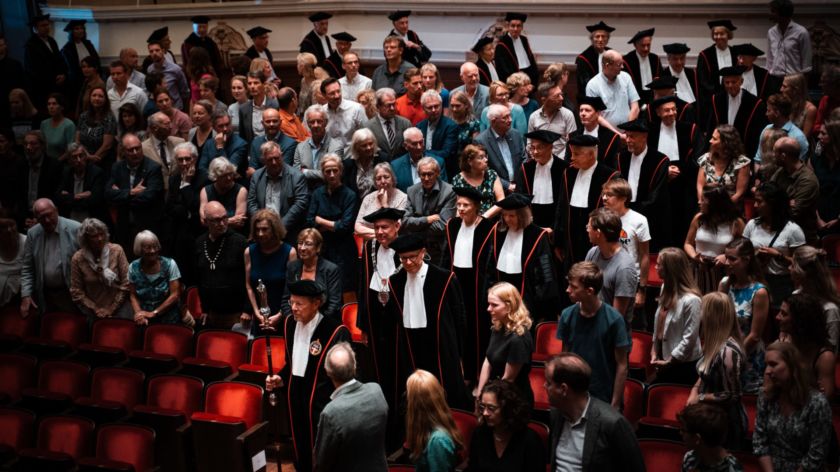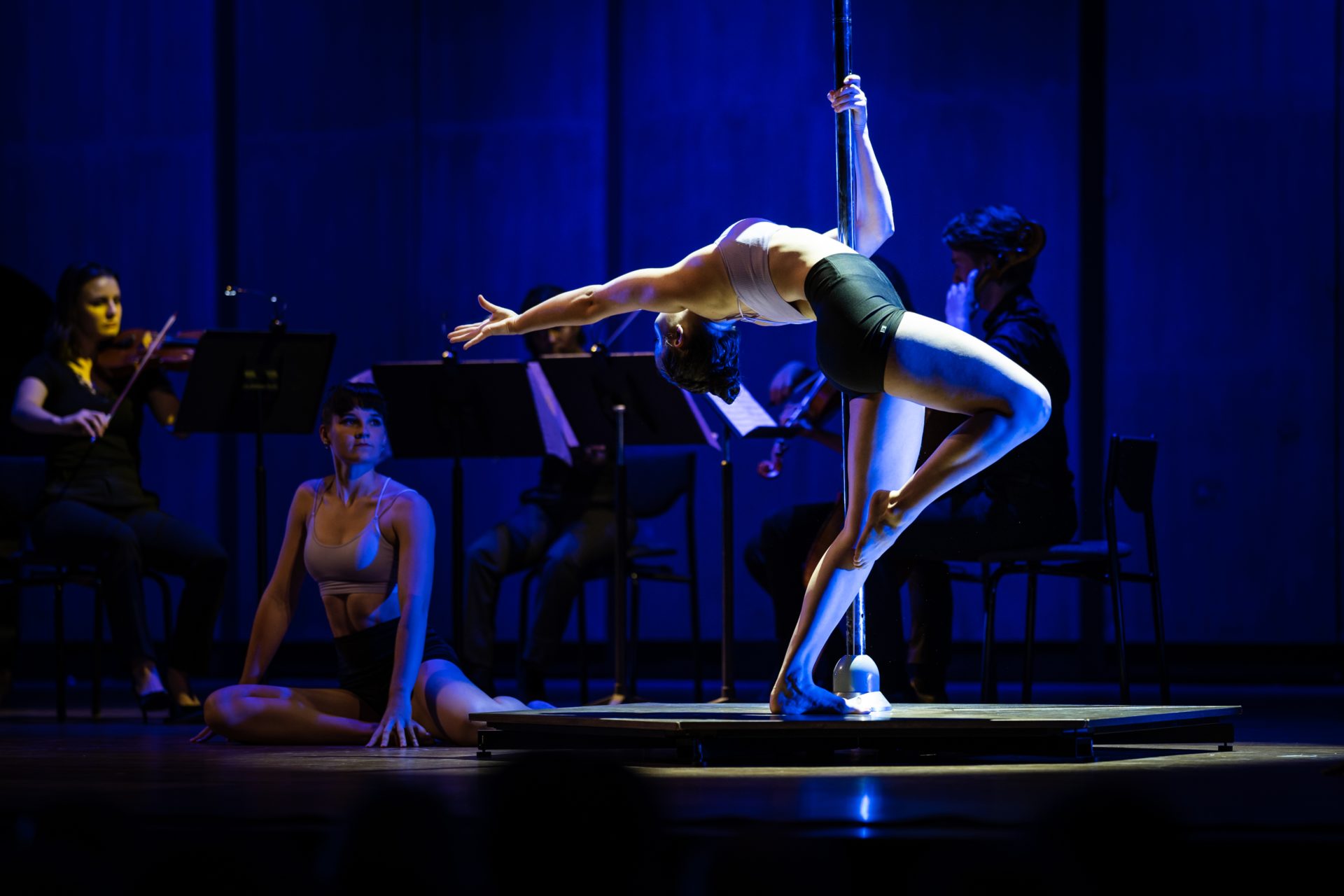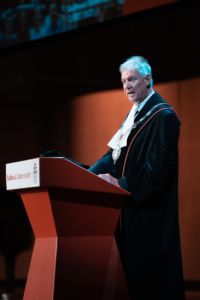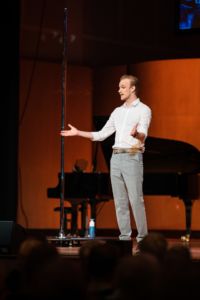Rector: ‘Resilience and flexibility needed in times of crisis’
-
 The procession of professors led by the beadle. Photo: Johannes Fiebig
The procession of professors led by the beadle. Photo: Johannes Fiebig
Radboud University prepares itself as well as possible for unforeseen events, but you cannot predict everything. This was said by rector Han van Krieken in his speech at the Opening of the Academic Year in the Vereeniging. ‘How do we prepare ourselves for something that we do not expect, or cannot even expect?’
After two online editions, the 99th Opening of the Academic Year was held in the Vereeniging, as per tradition, which was quite full of people for the occasion.
After the cortege of professors – with a performance of the Radboud song by student choir Alphons Diepenbrock – Rector Magnificus Han van Krieken took the floor. In his speech he dwelt on the crises in the Netherlands, Europe, and the world. Even in times of crisis, we as a university have a lot of control, he said. He referred, among other things, to the cultural change that the Recognition and Appreciation action plan should bring about this year and to the new code of conduct, which should lead to a diverse, equal, and safe campus.
Cyber attacks
Besides chances, there are of course also threats – Covid, possible budget cuts by the government, trying to fill vacancies – but according to Van Krieken, we can prepare for all of this. ‘The university has developed four scenarios for different situations concerning Covid-19. We are also working on financial tranquillity with the use of multi-annual budgets.’
Pole dancing
The theme of the 99th Opening of the Academic Year was ‘chances’. Chair of the board Daniël Wigboldus talked to the seven winners of the university student prizes. During a cultural intermezzo, students of pole dancing association Lasya danced to the string quartet of Dvorak, provided by the Nijmegen Student Orchestra Collegium Musicum Carolinum. The teams Medicine for the Intellectually Disabled and Substance Use Addiction and Food both won the Radboud Team Science Award, worth 10.000 euros which they can use to continue their research. The Internationalisation Prize, also worth 10.000 euros, was awarded to AMID Young Professional of the Faculty of Social Sciences.
In addition, the university also prepares itself for unforeseen events, says the rector. That could be in the form of evacuations, fire safety or cyber attacks, for example. But the biggest impact stems from events which we do not know of yet, and do not expect, Van Krieken warned, such as the Covid pandemic. ‘How do we prepare ourselves for something that we do not expect, or cannot even expect?’

Instead of going crazy with all sorts of safety systems and bureaucracy, the answer can be found in resilience and flexibility, according to Van Krieken – also for the university. A clear identity can help with that, according to him, as well as solidarity, diversity, and emancipation.
Tutoring
Master’s student in physics and philosophy Thomas Vissers warned in his speech for the increasing inequality of opportunity in higher education. Due to shortcomings in public education, people increasingly seek refuge in private education, Vissers said. The student referred to the number of homework and tutoring institutes that has increased by 61 percent in the last five years and to companies that prepare students for further education for a few hundred euros a day.
Vissers took a look at his own conscience. ‘Should I really be so easy to accept well-paid requests for tutoring and simply see myself as a provider of a service where there are a hundred others just like me? […] It is not only the policy, but also the sum of our own behaviour that normalises the gap and the excessive pressure for performance and prestige.’
‘Should I really be so easy to accept well-paid requests for tutoring?’
To conclude, the student called for a collective educational reform and came up with a proposal himself. ‘Many students are looking for a flexible and fun side job. What if, from now on, we gave all students an annual offer for this from the government? They would be allowed to give weekly tutoring sessions at secondary schools in their field of specialisation, on a registration basis. For this, they receive a nice salary from the government and an annual didactics course.’
Cabaret artist Katinka Polderman, who was artist in residence for the Gelderland heritage festival last academic year at Radboud University, concluded the afternoon with a short cabaret performance that made the audience laugh several times.
True Opening
At the same time as the Opening of the Academic Year in the Vereeniging, the True Opening of the Academic Year took place in The Hague, organised by action groups WOinActie en 0.7 and educational unions FNV and AOb. Under the theme ‘Uncertain contracts at Dutch universities’, about one hundred scientist of different universities came together. Among them were also scientists at Radboud University, such as philosophers Carlo Ierna and Lotje Siffels, cultural scientist Niels Niessen and professor of Economical geography Arnoud Lagendijk.
Translated by Jan Scholten.





